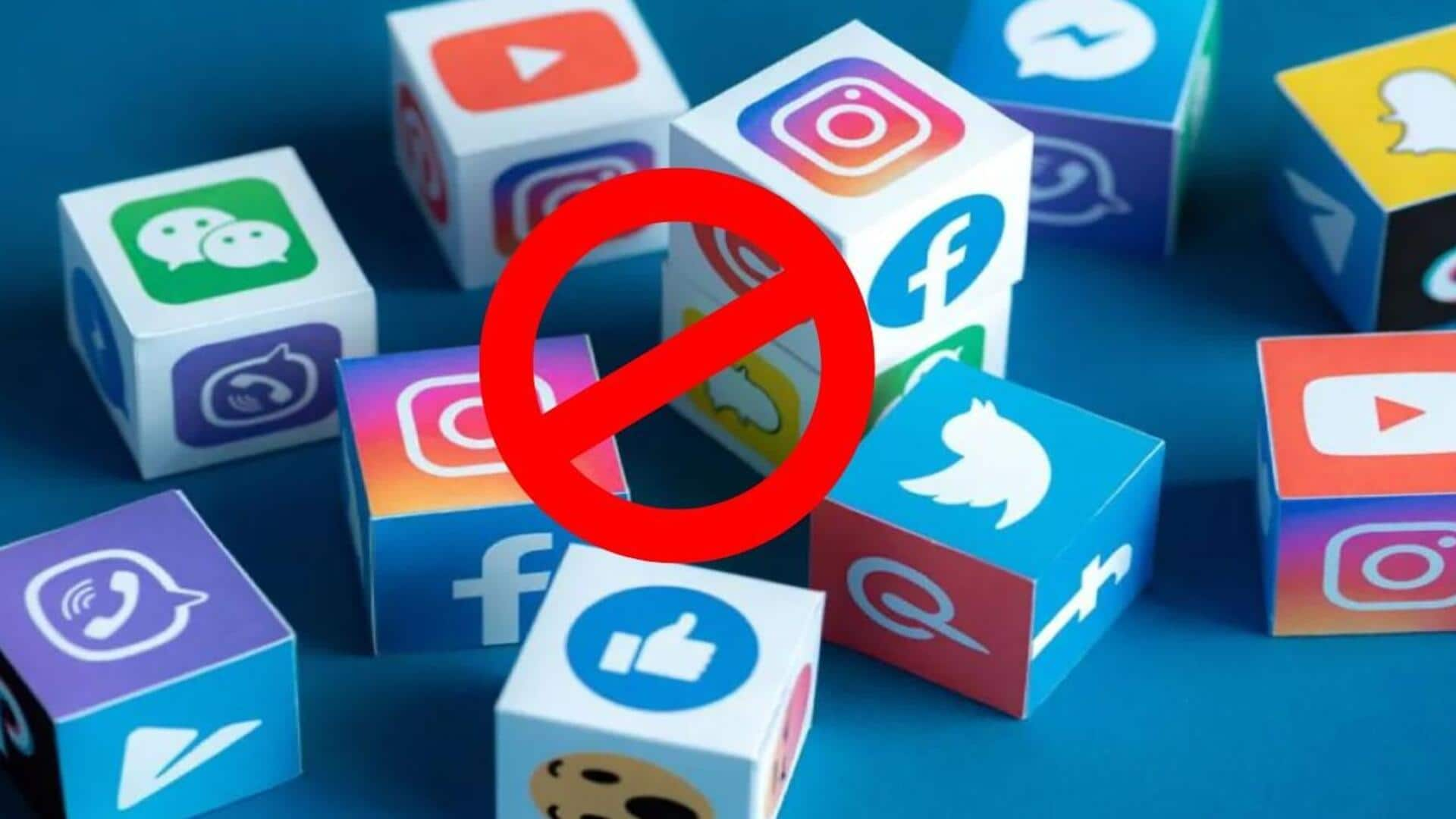
Why Nepal just blocked Facebook, Instagram, YouTube, other social platforms
What's the story
Nepal has ordered internet service providers to block access to major social media platforms, including Facebook, Instagram, YouTube, and X. The decision comes after these companies failed to comply with local registration rules. The move has drawn criticism from media rights groups and raised concerns over censorship and free expression in the country.
Government directive
Ministry issues directive to Nepal Telecommunications Authority
On Thursday, Nepal's Ministry of Communication and Information Technology directed the Nepal Telecommunications Authority to order internet service providers to block access to 26 social media platforms. The decision was taken after a meeting of ministry officials earlier in the day. Notably, TikTok and Russia's Viber are not included in this order as they have already registered with the government.
Social media blackout
Which platforms are affected
According to data from the Nepal Telecommunications Authority, internet penetration in Nepal is over 90%. Among social media users in the country, a whopping 87% use Facebook. This is followed by X at 6% and YouTube at 5%, according to web analytics firm Statcounter. The platforms affected by the government's decision include Discord, Facebook, Instagram, Messenger, WeChat, Reddit, Snapchat, YouTube, and X.
Registration deadline
Government gave platforms enough time to register
The government's decision comes after an August 25 directive that gave foreign social media companies a week to register their operations in Nepal and appoint a local representative. Communication and Information Technology Minister Prithvi Subba Gurung said the government had given platforms enough time to register in Nepal and made repeated requests, including to Meta, but they did not comply.
Restoration conditions
Access will be restored once they register
Access to the blocked platforms will be restored once they register in the country, according to a public notice issued by the Ministry of Communication and Information Technology. However, media advocacy groups and civil society organizations have criticized this move. The Committee to Protect Journalists said it would "seriously hinder journalists' work and people's access to news and information."
Legal backing
Supreme Court upheld local registration requirement last month
The government's decision comes weeks after Nepal's Supreme Court upheld the local registration requirement last month, ruling that it was aimed at curbing misinformation. However, the court did not explicitly order the government to ban platforms that failed to register. Instead, it directed officials to "make appropriate legal arrangements immediately, within the framework of the law."